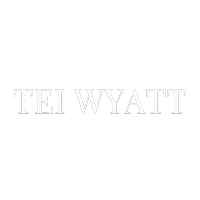The Hidden Costs of Being an Absentee Landlord


Investing in real estate can be a lucrative venture, but it comes with its own set of challenges, especially for absentee landlords. While the idea of owning rental properties from afar may seem appealing—allowing you to earn passive income without being tied down to a specific location—it’s essential to understand the hidden costs that come with this arrangement. Here, we’ll delve into the various expenses that absentee landlords should anticipate, including maintenance, property management fees, and unexpected costs that can arise.
Maintenance Costs
One of the most significant expenses for any landlord, but particularly for absentee owners, is maintenance. Properties require ongoing upkeep to remain attractive to tenants and functional for their needs. As an absentee landlord, you may not be able to address maintenance issues promptly, leading to larger problems down the line.
Regular maintenance tasks include lawn care, snow removal, pest control, and minor repairs like plumbing or electrical work. While some landlords might think they can handle these tasks themselves or rely on tenants to report issues as they arise, it’s crucial to have a proactive approach. Failing to address maintenance issues quickly can result in tenant dissatisfaction and increased turnover rates.
Moreover, it’s wise to set aside a budget for unexpected repairs. Appliances can break down unexpectedly; roofs may need replacement sooner than anticipated; plumbing issues can arise without warning. A good rule of thumb is to budget about 1% of your property’s value annually for maintenance and repairs. This proactive budgeting can help ensure you’re not caught off guard by sudden expenses.
Property Management Fees
For many absentee landlords, hiring a property management company is a necessity rather than an option. While this service can alleviate much of the stress associated with managing a rental property from afar, it comes at a cost. Property management companies typically charge between 8% and 12% of the monthly rent collected.
In addition to monthly management fees, there may be additional charges for services such as tenant placement (which might include advertising your property), lease renewals, inspections, and maintenance coordination. These costs can add up quickly and should be factored into your overall budget when investing in rental properties.
It’s essential to choose a reputable property management company that aligns with your investment goals and understands the local market conditions. A good manager will not only help maintain your property but also ensure that it remains occupied by reliable tenants who pay on time.
Unexpected Expenses
Even with careful planning and budgeting, unexpected expenses are an inevitable part of being an absentee landlord. Natural disasters like floods or hurricanes can cause extensive damage that requires immediate attention and significant financial outlay. Additionally, changes in local laws or regulations may necessitate renovations or updates to comply with new codes.
Another common unexpected expense is tenant turnover. When tenants move out, there are often costs associated with preparing the property for new occupants—cleaning, repainting walls, or even making upgrades based on tenant feedback. You might also face periods of vacancy where no rent is coming in while you search for new tenants.
Furthermore, if you’re relying on long-distance communication with contractors or property managers for repairs and maintenance issues, miscommunications can lead to costly mistakes or delays in addressing urgent matters.
Conclusion
Being an absentee landlord has its perks—flexibility in location and the potential for passive income—but it also comes with hidden costs that require careful consideration and planning. Maintenance expenses can accumulate quickly if not proactively managed; property management fees are necessary yet impactful on profit margins; and unexpected expenses can arise at any moment.
Before diving into real estate investment as an absentee landlord, it's crucial to conduct thorough research on the market you're investing in and create a detailed financial plan that accounts for these potential costs. By preparing yourself for these hidden expenses upfront, you’ll be better positioned to navigate the challenges of remote property ownership successfully—and enjoy the rewards that come from investing in real estate over time.
Categories
Recent Posts











